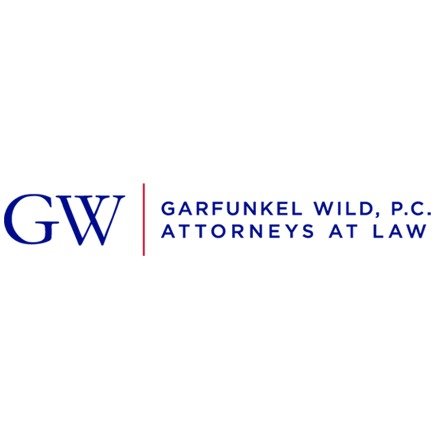Best Nonprofit & Charitable Organizations Lawyers in New York
Share your needs with us, get contacted by law firms.
Free. Takes 2 min.
Or refine your search by selecting a city:
List of the best lawyers in New York, United States
About Nonprofit & Charitable Organizations Law in New York, United States
Nonprofit and charitable organizations in New York play a critical role in supporting communities, providing services, and advancing cultural, educational, and social causes. These entities are formed for purposes other than generating a profit and are typically exempt from certain taxes, provided they comply with both state and federal regulations. In New York, nonprofits can take several forms, including charitable corporations, trusts, unincorporated associations, and membership organizations. The legal framework surrounding these organizations is designed to encourage transparency, accountability, and proper stewardship of resources, ensuring that the organization serves the public interest and complies with all relevant laws.
Why You May Need a Lawyer
While many people start or manage nonprofit organizations with the best intentions, legal complexities can arise at every stage. There are several situations in which consulting a lawyer is highly advisable:
- Choosing the correct legal structure for your organization
- Incorporating your nonprofit and filing for tax-exempt status
- Drafting and reviewing bylaws or governing documents
- Ongoing regulatory compliance and annual filings
- Understanding and navigating charitable solicitation requirements
- Handling employment matters such as hiring staff and volunteers
- Dealing with board governance or disputes among directors
- Managing real estate transactions, grants, or contracts
- Mergers, dissolutions, or restructuring the organization
- Responding to audits or investigations by government agencies
An attorney experienced in nonprofit law can help prevent costly mistakes, ensure legal compliance, and protect both the organization and its board members’ interests.
Local Laws Overview
New York has a comprehensive legal structure for nonprofit and charitable organizations, largely governed by the New York Not-for-Profit Corporation Law (NPCL). Here are some key points:
- Formation and Incorporation: Nonprofits must file a Certificate of Incorporation with the New York Department of State and specify their purposes and type of organization.
- Types of Nonprofits: New York classifies nonprofits into religious, charitable, educational, and other categories that determine applicable regulations.
- Bylaws: Organizations are required to adopt bylaws that detail governance, member rights, and board responsibilities.
- Board of Directors: New York law sets requirements for the composition, duties, and conduct of boards, including financial oversight and conflict of interest policies.
- Registration and Reporting: Charitable organizations that solicit contributions in New York must register and file annual financial reports with the New York State Attorney General’s Charities Bureau.
- Tax-Exempt Status: Organizations seeking exemption from New York State and federal taxes must comply with both IRS and state requirements.
- Fundraising Compliance: There are strict rules on registration, reporting, and disclosure for fundraising activities.
- Dissolution: Nonprofits must follow specific steps and obtain approvals when dissolving, to ensure assets are distributed for a charitable purpose.
Staying compliant with both state and federal laws is essential for maintaining your organization’s good standing and tax-exempt status.
Frequently Asked Questions
What types of nonprofit organizations can be formed in New York?
New York allows for several kinds of nonprofits, including charitable corporations, religious corporations, and membership organizations. The structure chosen depends on the organization’s purpose and goals.
Do I need to register my nonprofit with the state?
Yes, most nonprofits must file a Certificate of Incorporation with the New York Department of State. If you plan to solicit donations, you also need to register with the Attorney General’s Charities Bureau.
How can my organization get tax-exempt status?
After forming your nonprofit and obtaining an employer identification number (EIN), you must apply for 501(c)(3) or other applicable status with the IRS. You may also need to apply separately for New York State tax exemptions.
What governance rules do we need to follow?
New York law sets out rules for board meetings, director responsibilities, conflict of interest policies, and record-keeping. Your bylaws must comply with these requirements.
Are there annual filing requirements?
Yes. Most nonprofits must file annual reports with the Charities Bureau and, if tax-exempt, an annual return with the IRS. Some organizations may have additional local reporting obligations.
Can a nonprofit pay its directors or officers?
In most cases, directors serve voluntarily, but officers or employees may be paid reasonable compensation for their work. Policies must be in place to avoid conflicts of interest.
What are the rules around fundraising and accepting donations?
Charitable organizations must register before soliciting donations and follow strict registration and reporting requirements regarding fundraising activities in New York.
What happens if my nonprofit does not comply with state laws?
Noncompliance can result in penalties, loss of tax-exempt status, fines, legal action, or even involuntary dissolution of the organization.
How can we legally dissolve a nonprofit in New York?
Nonprofits must follow the dissolution procedures outlined in New York law, which include board and member approvals, settling debts, obtaining government consents, and distributing remaining assets for charitable purposes.
What legal records should a nonprofit keep?
Kept records should include governing documents, meeting minutes, financial statements, tax filings, state registrations, and key policies. Proper recordkeeping is vital for transparency and legal compliance.
Additional Resources
- New York Department of State, Division of Corporations
- New York State Attorney General’s Charities Bureau
- Internal Revenue Service (IRS) Exempt Organizations
- New York Council of Nonprofits (NYCON)
- National Council of Nonprofits
- Pro Bono Partnership and local legal aid clinics specializing in nonprofit law
These organizations provide guidance, forms, compliance checklists, and training events for nonprofits and those considering starting a charitable entity in New York.
Next Steps
If you need legal assistance with a nonprofit or charitable organization in New York, start by identifying your specific needs - whether it is starting a new organization, maintaining compliance, or addressing a legal challenge. Gather your governing documents, financial records, and details about your organization’s purpose and activities. Reach out to a qualified attorney who specializes in New York nonprofit law, or consult some of the resources listed above for preliminary guidance. Remember to stay up to date with annual filings, regulatory changes, and board governance best practices to protect your organization’s mission and operations.
Lawzana helps you find the best lawyers and law firms in New York through a curated and pre-screened list of qualified legal professionals. Our platform offers rankings and detailed profiles of attorneys and law firms, allowing you to compare based on practice areas, including Nonprofit & Charitable Organizations, experience, and client feedback.
Each profile includes a description of the firm's areas of practice, client reviews, team members and partners, year of establishment, spoken languages, office locations, contact information, social media presence, and any published articles or resources. Most firms on our platform speak English and are experienced in both local and international legal matters.
Get a quote from top-rated law firms in New York, United States — quickly, securely, and without unnecessary hassle.
Disclaimer:
The information provided on this page is for general informational purposes only and does not constitute legal advice. While we strive to ensure the accuracy and relevance of the content, legal information may change over time, and interpretations of the law can vary. You should always consult with a qualified legal professional for advice specific to your situation.
We disclaim all liability for actions taken or not taken based on the content of this page. If you believe any information is incorrect or outdated, please contact us, and we will review and update it where appropriate.
Browse nonprofit & charitable organizations law firms by city in New York
Refine your search by selecting a city.

















